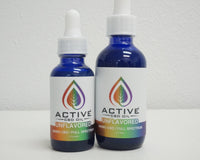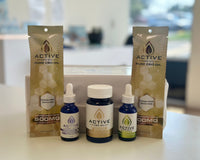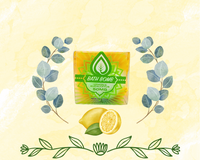One of the most frequent questions we answer here at Discover CBD is the question of, “Will this show up on a drug test?” Unfortunately, the answer to this question is not particularly straightforward. Typically, when we are asked this question, we explain that we cannot guarantee for sure whether or not any particular person will or will not pass a specific drug test. But why is this the case?

To answer this question, we need to dive a little deeper into how drug tests work and what most of them test for. The most commonly used drug tests, as outlined by the Substance Abuse and Mental Health Services Administration, screen for drugs known as the SAMHSA-5: amphetamines, cocaine, marijuana, opiates, and phencyclidine, or PCP. SAMHSA also has guidelines for testing for barbiturates, benzodiazepines, alcohol, hydrocodone, MDMA, methadone, methaqualone, and propoxyphene, although these are tested for more rarely. Only the test for marijuana is really relevant to the discussion of drug testing and CBD, as CBD should not cause a false positive for any of the other drugs tested for.
Drug tests in general can make use of blood, hair, urine, saliva, or sweat to determine results for drug metabolites, or small molecules that remain after a substance has been metabolized by the body. Each test is different, but by far the most common test is the urine drug test. The urine test for marijuana usage begins with an immunoassay, or biochemical test for the presence and/or specific concentration of certain molecules via the use of antibodies. In this case, the antibodies will react if they detect the presence of the THC metabolite 11-nor-delta9-carboxy-THC, or THC-COOH. SAMHSA’s cutoff point for the detection of THC is 50 ng (nanograms)/mL. When a test comes back at equal to or greater than 50 ng/mL, the positive result must be confirmed, which is accomplished by testing the sample again, usually with gas chromatography–mass spectrometry, but this time with a cutoff level of 15 ng/mL.

So what does this mean for CBD?
One positive point in all of this is that CBD and other cannabinoids are not very cross-reactive to the test for THC, meaning that most of the time, someone taking CBD only would be perfectly fine. However, there is always the random chance for sample contamination. Beyond that, someone taking large quantities of hemp oil or hemp extract in the amount of 1000-2000 mg daily may consume enough incidental THC to flag the test from 11%-23% of the time.
Also, it’s important to keep in mind, as with anything in the world of CBD, this is very individualized, and depends heavily on one’s own body chemistry, metabolism, activities, and diet just as much as which specific drug test is being taken. For all of these reasons, we cannot guarantee certain results one way or the other. With that being said, we have not yet heard of anybody failing a drug test after having taken pure CBD isolate or THC-free products. It would simply be irresponsible to completely rule out the possibility.
If you are super concerned about your products being completely THC-free, make sure to check the batch testing numbers you will find on any Active product. If you have erroneously purchased a batch that had a trace amount of THC, as long as it is unopened and we have a batch with 0 THC, bring it back and we will replace it for you with a different one.


























